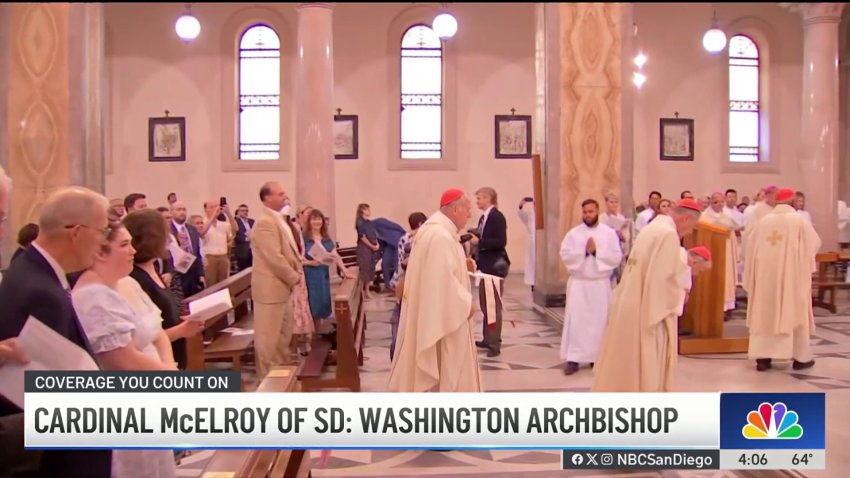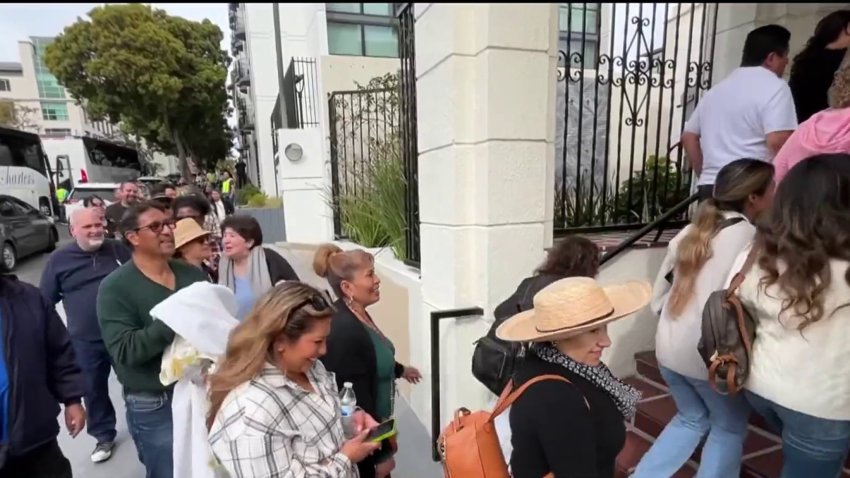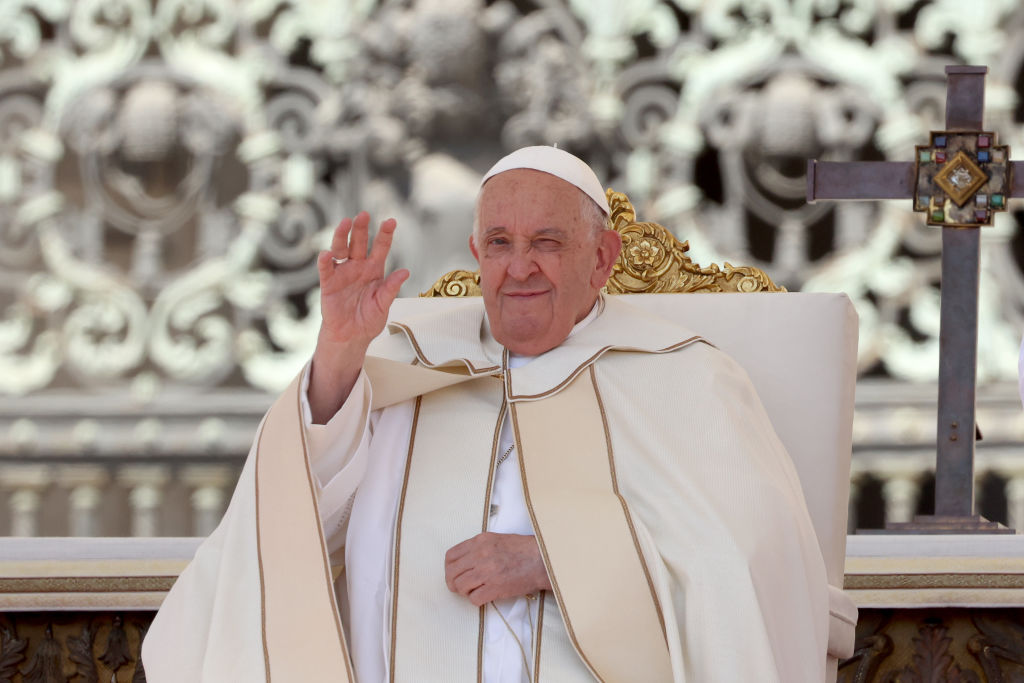Cardinal Robert McElroy will soon start his new role as archbishop of Washington D.C. NBC 7’s Shelby Bremer was there for his last message to San Diegans.
Cardinal Robert McElroy, who led the Catholic Diocese of San Diego for a decade, delivered farewell remarks Thursday on a range of topics – Pope Francis’ health, the church’s role in this political moment and more – before departing for his new role as archbishop of Washington.
“Throughout the world, people are raising their voices in prayer for the pope and praying that God will be with him, help him in the suffering, give him peace and give him strength and give him healing,” McElroy said at Diocesan Pastoral Center in Bay Ho, as Francis remained hospitalized, his condition seeming to improve.
Relevant content:
“The Pope Francis message of love and compassion and care, and considering everyone equal, is especially needed in our world at this time," he added.
Get top local stories in San Diego delivered to you every morning. Sign up for NBC San Diego's News Headlines newsletter.
Francis elevated McElroy to cardinal in 2022. McElroy recalled that he was recovering from heart surgery and, at the same time, concerned about kneeling to receive the red hat – so worried, that he bought kneepads. It was then that he said he saw the pope’s sense of humor shine.
“So he says, ‘How's your heart?’ And it threw me off balance,” McElroy recounted. “I said, ‘My heart is great,’ but I said, ‘My knees are bad.’ And he said, ‘So are mine. So we're in this together.'"
Francis has now tapped McElroy to lead the Archdiocese of Washington. He leaves San Diego Sunday and will be installed as archbishop on March 11, arriving in the nation’s capital as it stands at a crossroads.

“We're in a moment of great tumult in our country; things are being turned upside down in so many ways,” McElroy said. “This is a moment when we really have to grapple with: what does it mean in our society to be a compassionate society, for example? What does it mean to really say we believe in the equal dignity of every human person? And how do we live that out?”
When asked if he had plans to meet with President Donald Trump, McElroy said he had none “in the short run," adding that he did not see the church’s role as a political one.
“It has, rather, a moral role to comment on policies and to comment on directions in society,” McElroy said.
An area he sees that responsibility clearly is one he knows well from his decade in San Diego: immigration. He recalled spending an Easter Sunday with hundreds of young children who had recently crossed the border.
“They had a sense of such bewilderment, of feeling lost,” he said.
McElroy referenced a letter Francis wrote to the bishops in the U.S. on the heightened immigration enforcement – detentions, with the goal of mass deportations – taking place under Trump.
“Catholic teaching says a country has a right to control its borders. That's true in Catholic teaching, and that's a legitimate objective to pursue, so long as it's done with dignity for people,” McElroy said. “But what's going on now is a wider cultural attack upon all those who are undocumented, those who came to this country without proper papers, many of them fleeing persecution or violence, many in terrible economic situations."

“What's going on in our society is, there's an effort to classify all of these people as criminals,” McElroy continued. “When you classify people as criminals, then that class then is the other, is different and thus needing different treatment and not having the same dignity. And so the pope was saying, our first understanding of people has to be that we are all brothers and sisters first.”
And as Immigration and Customs Enforcement lifts its own restrictions to now allow raids at churches and houses of worship, McElroy said “without fear of hesitation,” the pope would be against those operations.
“It's a prism of dehumanizing people, to take all of these people who come here for various reasons, some of them coming as kids and to say these are all the criminal class,” McElroy said. “It's a falsity, it's a moral falsity.”
McElroy said this is an issue of great interest to the pope, noting, “He always asks about the border, the border’s a great concern of his, and the situation for migrants here in this part of the country.”
McElroy counts his work with migrants and his outreach – synods to engage the community on issues vital to the church – as points of pride. He said seeing the diocese through COVID also showed him San Diego’s compassion and strength.
“It has been a great grace for me being here, and part of my heart will always be here in San Diego, when I'm in Washington or wherever I am,” McElroy said.



